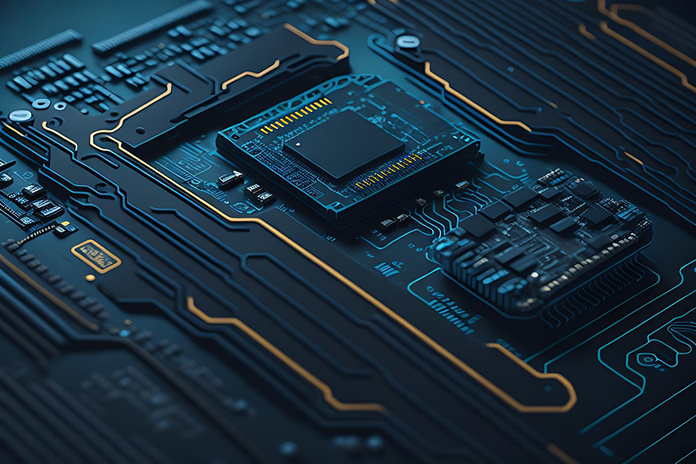Intel Stock Decline Threatens Dow Jones Inclusion
Intel (NASDAQ:INTC), once a dominant force in the tech industry, now finds itself on the brink of losing its spot in the prestigious Dow Jones Industrial Average. The chipmaker’s shares have plummeted by nearly 60% this year, marking Intel as the worst-performing stock in the index. This sharp decline in Intel’s stock price could lead to its removal from the Dow, an event that would be both symbolic and damaging to the company’s already tarnished reputation.
Impact of the Intel Stock Decline
Intel’s stock decline isn’t just a number on a chart—it’s a reflection of deeper issues within the company. The American semiconductor giant has been unable to capitalize on the booming artificial intelligence sector, largely due to its decision to pass on an investment in OpenAI. Meanwhile, Intel’s contract manufacturing unit, which was intended to rival Taiwan Semiconductor Manufacturing Company (NYSE:TSM), has been hemorrhaging money, further weighing down the company’s financial performance.
To address these challenges, Intel recently suspended its dividend and announced layoffs affecting 15% of its workforce. These measures, revealed during its latest earnings report, are seen by some analysts as too little, too late. Former board members and market strategists believe that Intel’s removal from the Dow was inevitable, with the latest disappointing results likely to serve as the final push.
Could Intel Be Replaced in the Dow Jones Index?
The Dow Jones Industrial Average is a price-weighted index, meaning that stock price, rather than market value, is a critical factor in determining inclusion. Currently, UnitedHealth Group (NYSE:UNH) holds the highest stock price in the index, which is about 29 times higher than Intel’s. This stark disparity further emphasizes the precarious position Intel finds itself in.
If Intel is removed, several candidates could take its place. Nvidia (NASDAQ:NVDA), with its stock up more than 160% this year, is a strong contender. Nvidia’s chips are essential for powering generative AI, making it one of the most valuable companies in the world. However, some investors argue that Nvidia’s volatility could make it a less ideal fit for the traditionally stable Dow Jones index.
Another potential replacement is Texas Instruments (NASDAQ:TXN), a chipmaker with a history dating back nearly a century. Texas Instruments has substantial production capacity within the United States, and its stock price has risen more than 20% this year, reaching $211.09. This price is much closer to the Dow constituents’ average, making Texas Instruments a more suitable candidate according to some market analysts.
Reputation and Market Impact of Intel’s Potential Dow Removal
The removal of Intel from the Dow would not only impact its reputation but could also have significant repercussions on its stock price. Historically, companies that have been removed from the Dow often see a further decline in their share prices as investor confidence wanes. For Intel, which is already down more than 70% from its record high in August 2000, this could mean a prolonged period of recovery or even further losses.
Intel’s potential exclusion from the Dow Jones Industrial Average serves as a stark reminder of how quickly fortunes can change in the tech industry. Once a symbol of American innovation, Intel now faces the very real possibility of being replaced by a more forward-looking competitor.
As S&P Dow Jones Indices, the organization responsible for maintaining the Dow, remains silent on the matter, investors and analysts alike are left speculating on Intel’s future. The situation underscores the importance of adaptability and innovation in an industry where the only constant is change.
Featured Image: Freepik



